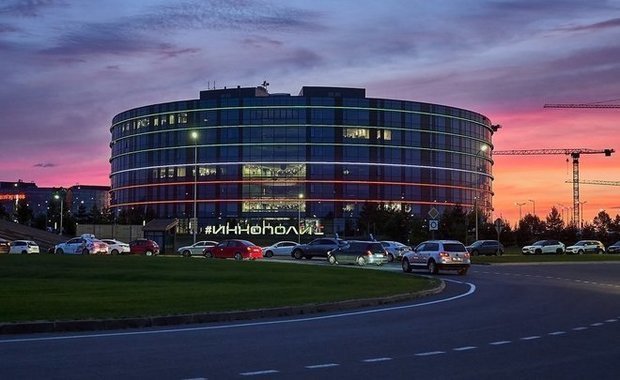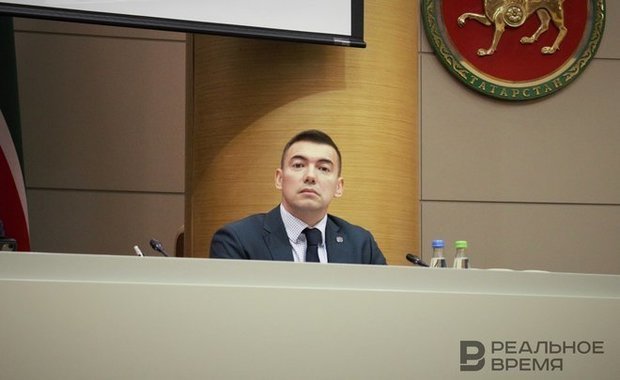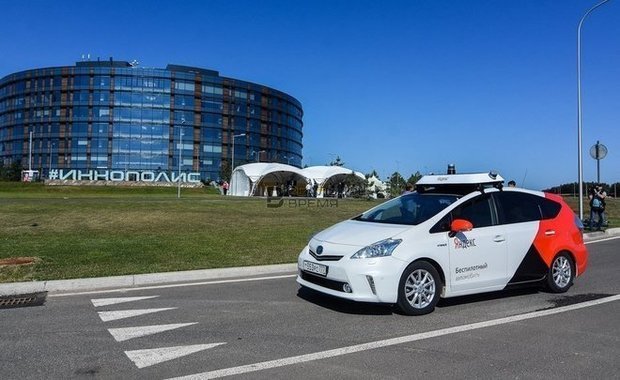Why Innopolis still remain IT village: population growth lags behind the plan
The population in it should have been 50 thousand already last year. In the meantime, only 5-7 thousand people live permanently in the “smart city”

This year, Innopolis celebrates 10 years since its foundation. The Tatarstan city, built following the example of the American Silicon Valley, was supposed to become the centre of attraction for IT specialists from all over the world. According to the master plan, the population of the city was supposed to reach 50 thousand people by 2021. However, today only 7,6 thousand people are living there (about 5 thousand permanently). The authorities of Innopolis hope to reach the level of at least 15 thousand residents only by 2025. Read more about what has come true over the decade, and what is still only in the plans of the Tatarstan IT capital — in the material of Realnoe Vremya.
Singapore trace
The idea of creating the innovation centre in the suburbs of Kazan was first voiced by Tatarstan President Rustam Minnikhanov in 2010. The project received the working name “IT village”. It was assumed that the construction of a settlement with office buildings, residential buildings, sports, recreational and educational infrastructure would be designed to accommodate 50 thousand people.
Architect Liu Thai Ker, the head of the Singapore company RSP — Architects, took up the development of the master plan. In the nineties, he was the chief architect of Singapore and also headed the department for the redevelopment of the city-state. According to his idea, in addition to the main centre, four additional ones were created on the island. Thus, people began to be evenly distributed across Singapore and didn't create traffic jams.
In April 2012, Liu Thai Ker persuaded to increase the projected population of Innopolis to 155 thousand people to provide the future IT city with growth potential for several decades to come. The first registered innopolisians (the official name of the inhabitants — ed.) appeared in the city in August 2014, but the date of settlement of the permanent first residents is counted from 2015. As of November 2016, 102 people were registered in the city at their place of residence, about 2,5 thousand more rented housing.
Before receiving the status of a city, Innopolis was a settlement within the Vvedenskoye-Slobodskoye rural settlement. In accordance with the Republican Law No. 115-ZRT, adopted by the State Council on November 26, 2014 and signed by Rustam Minnikhanov on December 13, 2014, the “IT Village” was transformed into a city of district significance from January 1, 2015.
Housing finished last year
By 2021, plans to increase the population to tens or hundreds of thousands of residents had not been successful. Then the mayor of Innopolis, Ruslan Shagaleev, said that 5 thousand people live in the city and 245 IT companies work. At the same time, Deputy Prime Minister of Tatarstan Roman Shaykhutdinov announced plans to double this number in 5 years.
“We will receive about 12 thousand people who will come here from all over the country and from neighbouring countries," he said.
Already in January of this year, Roman Shaykhutdinov reported that housing had ended in Innopolis due to an increase in the population. These are about two thousand rental apartments in apartment buildings and 350 apartments in townhouses — we are talking about cottage settlements Zion-1 and Zion-2. He noted that in order to resolve the issue, the authorities of Tatarstan approved the start of construction of new apartment buildings.

Instead of 50 thousand people by 2021, there will be 15 thousand by 2025
This week, the mayor of Innopolis, Ruslan Shagaleev, said that the city's population will reach 15 thousand people by 2025. According to him, today 7,6 thousand citizens live in it, including about 5 thousand permanently. Every third resident is an IT specialist or scholar. The average age is 31 years.
He also noted that along with the population growth in the city, the infrastructure continues to develop. Thus, the construction of a 53-room robotic hotel is being completed in Innopolis. Besides, the second stage of the Zion townhouses are to be completed this year. However, they will be settled next year. The construction of the residential quarter Yu for 3,5 thousand apartments was also started.
Separately, he stressed that rental housing has completely ended in the city, which is why some nonresident employees of Innopolis SEZ have to rent housing in the residential complex Salavat Kupere (a daily transfer is organised for them).
“Our growth is limited by the availability of free housing. We have fifteen hundred rental housing. This is the largest rental fund in Russia. About five hundred apartments-townhouses are Zion, and a thousand places in the campus, three more are being built now," the mayor of the city said.

There are no apartments, but there are salaries and infrastructure
Speaking about the social infrastructure, he said that together with the houses, a school for 900 places, a kindergarten for 600 places, as well as a children's polyclinic for 5,8 thousand square metres will be built. At the same time, it is planned to build two new technoparks for 4 thousand jobs, Atomdata-Innopolis data centre, and a park of high-tech industries for 12 thousand square metres.
“Innopolis has the highest level of salaries. According to Tatarstan Statistics, the average salary in the city is 146 thousand rubles," Ruslan Shagaleev added.
The salary of IT specialists in Tatarstan ranged from 25 to 30 thousand rubles in 2012. Even then, it was considered higher than the average in the republic.
According to the latest data from Innopolis, today there are eight unmanned vehicles operating in the city (more than 50 thousand trips have been made since 2018), 18 delivery robots operate, including two from the Russian Post (more than 80 thousand deliveries since 2020). Also, starting next year, it is planned to launch the delivery of goods and parcels by unmanned aerial vehicles (UAVs).

Russian grants against Western sanctions
In 2022, Innopolis received grants totalling 286,5 million rubles. The city will receive another 32,4 million rubles from the Industrial Development Fund (FRP), 96,2 million from the Innovation Assistance Fund (FSI), 95,1 million rubles from the Skolkovo Innovation Center, 3 million from the Tatarstan Investment Venture Fund (IVF RT).
However, the anti-Russian sanctions have not spared businesses, and even more so in the IT sphere. Director General of Innopolis SEZ Renat Khalimov answered the question of Realnoe Vremya about the situation with the companies that existed at the expense of foreign financing:
“A number of companies that had foreign customers have faced difficulties, including money transfers, and some customers began to refuse. But mostly, more than 90% of the decisions were focused on the Russian market," he said.
As Khalimov noted, Innopolis SEZ has always focused on Russian companies, so there is no large outflow of foreign enterprises from the city. Those who worked with foreign customers eventually found ways to preserve their sales markets.
“Probably, this is our difference from Skolkovo, where there are a lot of international companies, so they felt a serious outflow. Then we thought that it was not good and we should actively attract foreign investors, and even started this work. Now we've realised that we guessed right with that we used to give the best conditions to Russian enterprises," the speaker added.

Less than 3% of residents are suffering without sponsors abroad
Innopolis also commented on the situation around the Mircod group of companies, which is engaged in biotech. As it became known to Realnoe Vremya, the resident found itself on the verge of collapse. As a result of the rupture of Russia's relations with Western countries, the business was decapitated — central office, the source of funding, is now located in an unfriendly country.
“We connected them with several funds that work on foreign investments. It is clear that they had a condition there for the organisation of a legal entity and, in principle, a business outside of Russia. They are currently conducting these negotiations. The team has been preserved. Most of them are located in Kazan. This is a spin-off, that is, a separate direction from the main legal entity," Khalimov said.
According to the CEO, less than 3% of companies found themselves in a similar situation. This is by 10 enterprises less out of 336.
